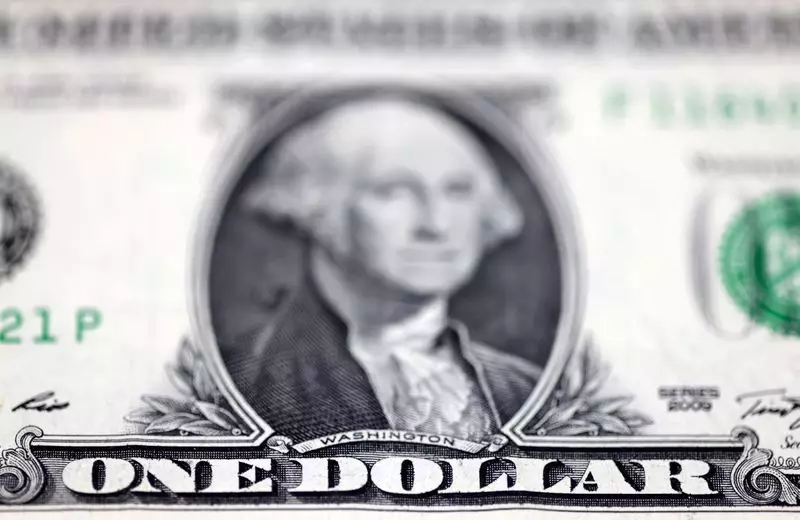As global markets react to the ever-changing economic landscape, one currency stands resilient: the U.S. dollar. Recently, it has exhibited a firm stance as traders anticipate the implications of President-elect Donald Trump’s proposed economic policies. The market has been rife with speculation regarding the Federal Reserve’s future interest rate adjustments, creating a scenario where the dollar is once again gaining strength after a brief period of stagnation.
In the aftermath of the U.S. presidential election, the dollar has witnessed surprising movements, reflecting investor sentiment towards the newly elected administration’s policies. Following Trump’s election, the dollar surged by over 2%, attributed to optimism about impending fiscal policies that could spur inflationary pressures. These expectations have led many market participants to reevaluate the Federal Reserve’s anticipated trajectory on interest rate cuts, with many now questioning whether they will proceed as aggressively as previously presumed.
Economists and traders alike have shifted their focus to the potential fallout from Trump’s campaign promises, particularly those related to tariffs. With Europe and China likely feeling the brunt of these intended trade reforms, the ramifications for global markets are profound, making it difficult for investors to “short” the dollar effectively at this time. The sentiment in the market has become cautious yet optimistic, as the dollar index has rebounded, edging closer to the high it achieved last week.
Market volatility has been accentuated by mixed signals from the Federal Reserve. Just days before the anticipated December meeting, two Fed governors provided contrasting perspectives regarding future rate changes. While one highlighted persistent inflationary concerns, the other remained hopeful that price pressures would start to ease. This divergence has contributed to uncertainty surrounding the direction of interest rates and has impacted trading strategies across the board.
An analysis from market watchers reveals that expectations around the Fed’s rate cut decision have markedly changed. The odds of a cut at its December session have dropped considerably from earlier projections, suggesting that the central bank may adopt a more cautious approach due to the shifting economic fundamentals influenced by Trump’s potential policies. Given that many economists still foresee cuts coming, this anticipation creates a precarious position for traders trying to navigate the foreign exchange maze.
When examining currency comparisons, the euro has also been under pressure, namely due to the ongoing geopolitical tensions spurred by the Russia-Ukraine conflict. The recent uptick in military actions has not only exacerbated EU concerns but also had a direct impact on currency strength. As the euro weakens against the dollar, it not only has implications for regional trade but also influences broader dollar strength. This creates a dynamic environment where a beleaguered euro can serve as a bullish signal for the dollar given its considerable weight in the dollar index.
Furthermore, the yen’s performance has shown signs of vulnerability as it faces pressure amidst the dollar’s recovery. Despite minor fluctuations, the stability of the dollar against the yen raises questions about intervention from Japanese authorities, especially as market pricing for a potential rate hike from the Bank of Japan looms. A stronger indication from the Bank of Japan regarding interest rate adjustments could alter the competitive landscape for the yen and offer more volatility in forex markets.
While the pound has experienced slight gains against the dollar, driven by domestic inflation data surpassing expectations, the broader environment remains delicate. Investors are scrutinizing the interplay between geopolitical developments, economic policies, and their implications on currency valuations, trying to gather insights into sustainable trends.
As we move forward, the dollar’s trajectory appears locked within a complex web of economic indicators, political maneuvering, and global unrest. Investors and policymakers alike are treading carefully as they consider the broader implications of Trump’s forthcoming policies and the Fed’s responses. With uncertainty reigning, the future of the U.S. dollar remains a focal point not just for American markets but for global economic stability as well. The performance of the dollar in the ensuing days will likely hinge upon the delicate balance of domestic developments and international pressures. As such, remaining vigilant and adaptable will be key for market participants navigating this volatile currency landscape.

